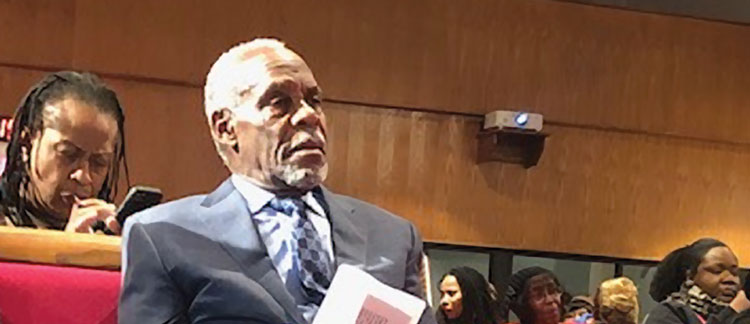Letters From Our Readers: Addressing a redress

Shutterstock
Addressing a redress
I found “Truth and Reparations,” April-May, page 9, fascinating. I have not entirely made up my mind on reparations. As a white male, I have emotionally vacillated between two poles over time. Liane Jackson’s article, though, made me really examine my own thoughts again. On the one hand, it has always been tempting to cling to the idea that I didn’t participate—at least not intentionally—in slavery and everything that came after. I am not even sure if my ancestors did. So why should I pay for it?
On the other hand, as I get older, I find it impossible to deny the ongoing societal effects and legacy of slavery, institutionalized racism and so many other related problems—and that I have undeservedly enjoyed a white privilege to varying degrees throughout my life (it is a hard-to-come-to realization that you didn’t earn everything you have entirely on your own merit).

Photo of Danny Glover by Liane Jackson
I do not pretend to know what the “right” answers are—or to presume the “right” answers will be right for everybody; however, I have come to a more humanistic and interconnected understanding that if my black neighbors and friends suffer, my whole neighborhood suffers. From that place, without assigning blame or merit, I find it much easier to consider reparations or other policies to promote a more just and equitable society—and in so doing, to help right the wrongs of the past. Articles like yours are important to promote these conversations. I was particularly interested in the idea of sales tax proceeds from recreational marijuana as a funding mechanism for reparations.
Jeremy M. Goodman
Phoenix
Excellent article about reparations. My great-great-great-great grandfather Joseph Rucker was the first millionaire in Georgia. He obtained this status because of his numerous plantations and the hundreds of slaves he owned. I support reparations because of what he and other family members did prior to the Civil War. I encourage the >ABA Journal to keep writing about this issue. It brings up a lot of well-buried dirty laundry, but it’s familial facts that have to be addressed.
K. Denise Rucker KreppWashington, D.C.
Combating negative PR
As always, I found the ABA Journal relevant and informative. Of particular interest was “Good Press,” February-March, page 18, by Danielle Braff, regarding the oft-cited and ever-present public relations challenge facing attorneys and the legal profession as a whole. The premise of the well-presented article identifies a perceived lack of public trust with our profession and addresses those concerns with commercial marketing and social media strategies—or PR campaigns—to “bolster [the] credibility and expertise” of attorneys.
I suggest that missing among the tools available to repair negative public perception about the legal profession is the full-throated recognition and publicity of the existence of each state’s Lawyers’ Fund for Client Protection.
Client protection funds are often referred to as the best-kept secret of the legal profession. This characterization is puzzling, given these lawyer-financed programs provide reimbursement to victims of dishonest lawyers and reflect the commitment of the overwhelming majority of honest lawyers to restore the public’s faith and promote confidence in the legal profession. In fact, the legal profession is the only profession that offers such protections to its clients. In a very real sense, client protection funds exist because of good lawyers.
Michael J. Knight Sr.
Alban, New York



